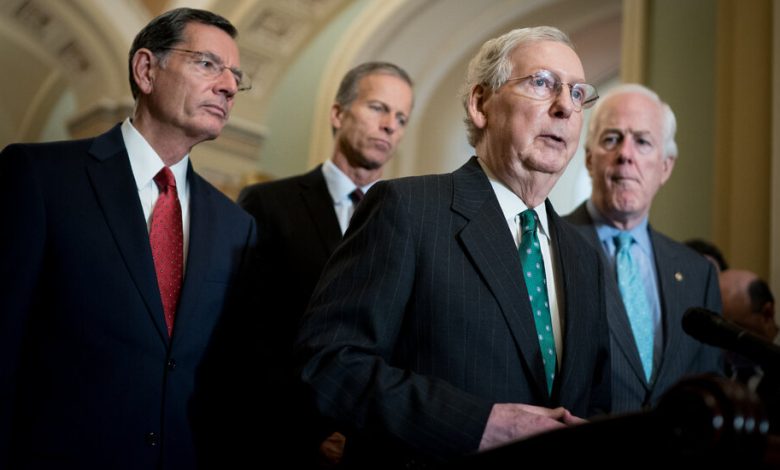New Senate Leadership Tussle Is a Throwback to the Old Days

When Senator Mitch McConnell, the Kentucky Republican and longest-serving Senate leader, decided to step aside from his leadership role at the end of the year, it signaled the turning of a new page in the chamber.
But the intensifying battle to replace him, between Senators John Cornyn of Texas and John Thune of South Dakota and possibly others, is really a throwback to an earlier era, when leadership races in Congress were crowded and sometimes messy affairs featuring prominent figures and dueling factions.
For all the power they wield in Congress, Senate leaders have not had to fight too hard for their positions in recent years. Mr. McConnell, the current record-holder with almost 18 years at the top, did not face an opponent when he first won the job in 2006. He remained unchallenged until last year, when he had to fend off a weak coup attempt by Senator Rick Scott of Florida.
Before Senator Harry Reid’s retirement in 2017, the Nevada Democrat and party leader passed the reins seamlessly to Senator Chuck Schumer of New York. Mr. Reid himself had quickly sewn up the Democratic job when it suddenly came open in 2004.
But uncontested transitions were not always the norm. In years gone by, contenders for Senate leadership posts typically spent months maneuvering to secure secret commitments from colleagues who naturally all wanted something in return (and sometimes reneged on those commitments).
From now into November, every vote, statement and political move that Mr. Cornyn and Mr. Thune make will be analyzed in the context of the competition between them to become G.O.P. leader. That is more reminiscent of a pitched battle in 1984 that pitted some of the most powerful Senate Republicans against one another in a storied showdown to win the top job.





